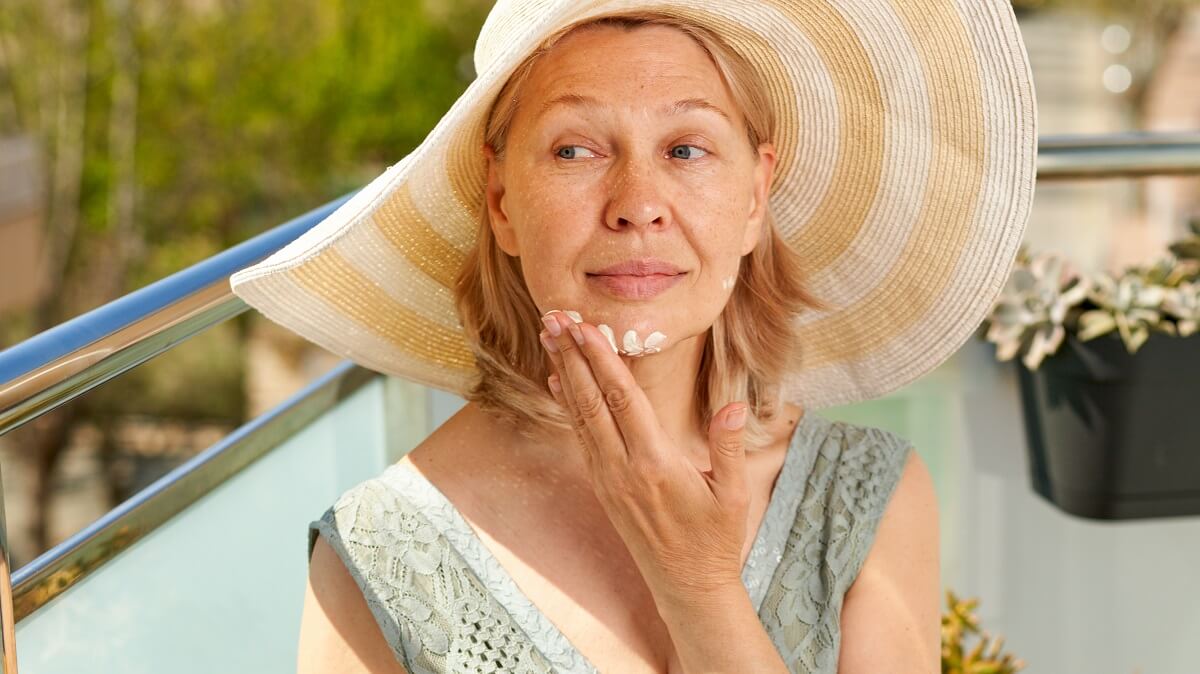Summer is just around the corner and with that comes long, leisurely swims and days next to the ocean or pool. But all that sun, salt and chlorine can have an effect on your skin so it’s important to rinse off after you’ve been for a swim to keep your skin happy.
How chlorine affects your skin
Chlorine is a halogen and kills bacteria and other microorganisms when added to water. This is why it’s found in high concentrations in swimming pools.
Your skin can feel dry and irritated after swimming in a chlorinated pool. Pool water tends to have a pH of between 7.2 and 7.8, which is higher than your skin’s natural pH of around 5. This means your skin barrier is slightly disrupted after swimming and needs to be rinsed and soothed as soon as possible to speed up the repair time.
Your skin’s pH restabilises after being disrupted by things such as chlorine, but it may not bounce back quickly when it happens repeatedly.
Chlorine enhances the drying effect of water so use a good moisturiser after rinsing off to help rehydrate your skin.
If you have sensitive skin, chlorine can cause it to become red and itchy. In some cases, chlorine can even cause eczema. Removing the chlorine from your skin as soon as possible can help minimise the irritation.
Read: Things you only know if you love wild swimming
Products to avoid after a swim
It is recommended to avoid products that contain alcohol, fragrances, and harsh chemicals, as these can strip away the natural oils in the skin and further dry it out.
Instead, look for hydrating face cleansers and body washes. While it may be tempting to skip these products, you do need to cleanse your skin to wash away any residual sunscreen, chlorine, salt, or sweat.
It’s best to avoid exfoliating after you’ve spent a lot of time in the water too. Your skin is likely already dry, so you don’t want to risk irritating the moisture barrier further. This means body scrubs, chemical exfoliant serums and lotions, retinol body lotions, and dry brushing is all best avoided.
Post-swim skincare routine
Use a gentle cleanser
Reach for a gentle, hydrating body wash and face cleanser to remove chlorine, salt and sunscreen. Oil cleansers are a great post-swim choice because they hydrate and moisturise the skin.
An oil cleanser will help remove any residual chlorine from your skin while replenishing your skin’s natural oils.
Read: Six steps to build an effective daily skincare routine
Try a hydrating serum
Hydrating serums enhance your skin’s hydration, prevent it from drying out and improve its moisture retention. Many serums contain lipid-replenishing ingredients that deeply nourish the skin. Look for formulas that contain hyaluronic acid, B5, niacinamide and ceramides.
These give your skin an extra boost and help repair a compromised barrier from the sun and chlorine or saltwater.
Hydrating serums will not only protect your skin from damaging factors such as UV rays, air-conditioned rooms, stress and pollution, but they also treat skin that has already been exposed. Serums often contain antioxidants to help combat free radicals and keep your skin healthy. Antioxidants are extremely beneficial as they prevent skin cell damage, help to slow premature aging and improve the skin’s elasticity.
Don’t forget to moisturise
You should choose a type of moisturiser that suits your skin type. If your skin is on the oilier side, reach for a lightweight moisturiser. If you tend to dry out easily, a richer, creamier product may work better. These rules apply to both the face and the body.
Looking for a moisturiser that contains soothing ingredients such as aloe vera will help to combat irritation and help repair the skin from sun exposure.
Keep an eye out for those containing ceramides, botanical oils (such as squalene or moringa seed oil), and shea butter as well.
Don’t skip sunscreen if you’re heading out again
It can feel a bit uncomfortable to reapply sunscreen after you’re feeling all fresh and clean from a shower, but it is important if you’re going out in the sun again.
A good rule of thumb is to reapply every two hours, or even more frequently if you’re going in and out of the water.
Read: Have you been washing your hair correctly?
Don’t forget to treat your hair
It is best to use a clarifying shampoo as this can help in balancing the pH levels of the scalp after coming in contact with chlorine. Don’t scrub your scalp too much as this can cause irritation. Use cold water for your final hair rinse to protect your roots. Finally, pop in some leave-in conditioner and let your hair air dry.
Take care of your nails
Frequent or prolonged contact with chlorine can make the nails brittle and damages the healthy, top layer of your natural nails. To keep your nails healthy, avoid using acetone nail enamel removers too often. Use olive oil or cuticle oil to massage your cuticles every night and protect them with a hydrating basecoat before a manicure.
How often do you swim during summer? Are you a fan of the swimming pool or do you enjoy an ocean swim? Why not share your thoughts in the comments section below?

